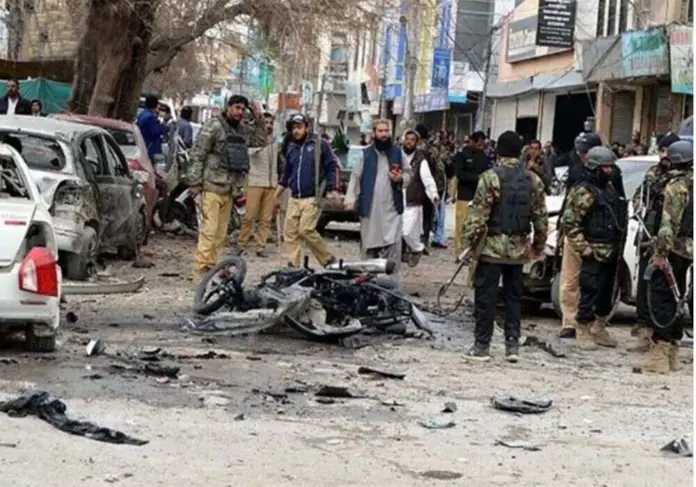Pakistan has been confronting terrorism for a long time; several people have put forth opinions regarding terrorism as it started since the 9/11 incident but these concepts are appropriate to define 9/11 particularly. Formulating the origin of this menace multiple indications are seen. It is viewed that terrorism started in 1979 after the Soviet-Afghan war, where some combatants were sent from tribal areas of Pakistan to fight against Russian battalions. However, Zia-ul-Haq’s regime was labelled as spreading terrorism and extremism in Pakistan- an inceptive era of sectarian violence. Religious sensitivity grew, which gradually, turned into terrorist incidents. Similarly, another disruption of terror and chaos came about on 9/11 when enormous devastation emerged and provoked insurgencies at large, although Pakistan has taken considerable measures to protect the state from this scourge.
Pakistan military played a distinguished part to evaporate these challenging dangers. Operations Zarb-e-Azb and Radd-ul-Fasaad were launched to counter augmenting extremism in state Pakistan. Thus the constant terrorism and extremism undoubtedly have sickened the state and its individuals on a massive level; however, to come upon these hazards some well-grounded preamble based on the National Security Policy is required. Before talking about the spread and threat of terrorism, some chronology must be examined about how a country was being threatened by these deplorable episodes, which suppressed the structure of the state and individuals to accomplish their objectives.
Since 2001 a tide of terror escalated to an unrestricted magnitude where people were not feeling adequate to go outside in the market or other public areas because of the threat of insecurity. Multiple measures were taken to stop the same, but the start of the 21st century proved that in the future these social evils would be lethal to abolish. Thousands of people were assassinated and resultantly Pakistan confronted some international sanctions in 2012. Due to these bolstering elements, Pakistan has been grey-listed by the Financial Action Task Force (FATF), which degraded the GDP of the state and stopped the tourism industry from prospering.
Additionally, threat, danger, or risk always prohibit the nation and public to change their positions in the spheres of power and existence. Life is already unpredictable and people are scrambling to secure victory or fortune but if these hazards come in the form of terrorism and extremism, the people would not be able to live happily. But countering all these social ills and establishing several acts so far to uproot this curse, Pakistan is confronting these threats up to now, which not only irritates citizens but also creates jeopardy on a global level.
Recently, the terrorist attack in Lahore created skepticism among the international actors who control the major organizations. Due to the misfortune of terrorism, and money-laundering, Pakistan is grey-listed since 2018 and can not be white-listed if all these remain the same. Another destructive terrorist attack appeared in Balochistan where such insurgencies are common due to the militant groups of Afghanistan. However, it is assessed that some rival states are at the back on this incident like India or Afghanistan, but the troublesome contests organize many challenges to everyone.
Nevertheless, Afghanistan’s peace is remarkably essential to establishing prosperity in Pakistan as both countries share a border of 2,640 kilometres. Thus, if it is conceived that Afghanistan was at the back of Balochistan’s insurgency, then both Pakistan’s decision-makers and the Taliban government in Afghanistan are presumed to solve these conflicts; understanding the cost of peace and stability. To eradicate this menace Pakistan has taken seriously the National Counter Terrorism Authority (NACTA) to revise and amend some policies regarding anti-terrorism. The 1997 anti-terrorism act was first introduced to uproot it and then in 2014 the Pakistan Muslim League-Nawaz (PML-N) government made the National Security Policy to break down all extremist groups. So much so in 2015 NAP was made to tackle the augmenting deadly terrorist attacks and other religious sensitiveness. Moreover, after establishing these policies to counter spoil elements within the state, Pakistan was put on the white-list. Likewise, internationally the grey-listed states are perceived safe for terrorist organizations. These achievements of any nation or state cause economic downfall.
The constant terrorist attacks – one in Lahore and the other in Balochistan – have again frightened the people to meet their targets. It is conceived that some political rivals play these tactics to disrupt the peace and stability of Pakistan. Undoubtedly, interminable terrorism has intimidated the state and its individuals at large, and Pakistan sets numerous agreements, acts to obliterate this menace from the state.







